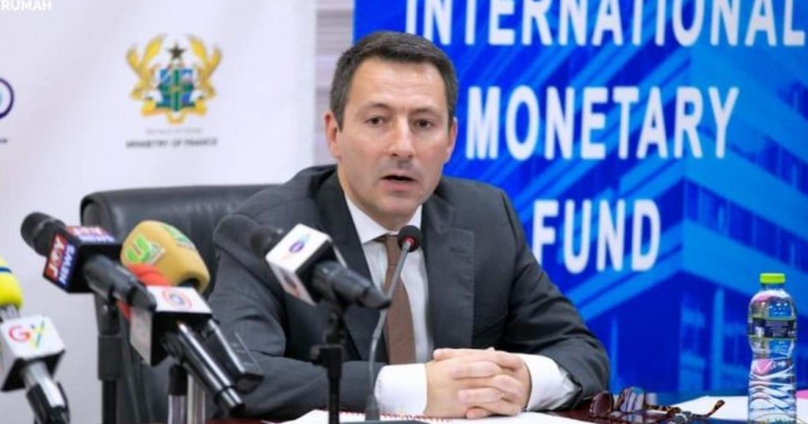Ghana’s bid to achieve financial and debt sustainability has been met with challenges each step of the way. Here is a comprehensive timeline account of Ghana’s debt rework quest.
February 2022:
Credit ratings agency Moody's downgrades Ghana's credit rating from B3 to Caa1, citing very high credit risk. This followed Fitch's earlier downgrade from B to B-.
March 2022:
Ghana's central bank implements a significant interest rate hike of 250 basis points, raising rates to 17% to combat soaring inflation and currency depreciation.
April 2022:
The Ghanaian parliament approves the introduction of an "e-levy" tax on electronic payments, aimed at bolstering government revenues.
May 2022:
Finance Minister Ken Ofori-Atta declares Ghana's intention to manage its debt independently without IMF assistance.
July 2022:
Facing mounting economic challenges and public protests, the Ghanaian government reverses its stance and requests a loan from the IMF to alleviate financial pressures.
July 20, 2022:
Ghana's parliament green lights a $750 million loan from the African Export-Import Bank in a bid to avoid default and stabilise the economy.
August 2022:
Ghana's central bank implements another record interest rate hike in response to escalating inflationary pressures.
December 2022:
Ghana launches a domestic debt exchange program to address burgeoning debt obligations.
A staff-level agreement is reached between Ghana and the IMF for a $3 billion rescue package, contingent on debt restructuring.
December 20, 2022:
Ghana announces its inability to meet most external debt obligations, signalling a looming default crisis.
December 22, 2022:
In response to union threats of a general strike, local pension funds are exempted from the domestic debt exchange.
January 2023:
Ghana seeks debt restructuring under the G20's Common Framework, inclusive of non-traditional creditors like China and India.
February 2023:
The domestic debt exchange concludes with approximately 85% participation from eligible bondholders.
Talks commence between Ghana and official bilateral creditors to form a committee for debt restructuring.
March 2023:
Negotiations for debt restructuring between Ghana and international bondholders, facilitated by respective advisors, commence.
May 2023:
Ghana's official creditors established a committee, jointly chaired by China and France, committing to debt restructuring.
June 2023:
Ghana submits a debt restructuring proposal to official creditors, aiming to alleviate $10.5 billion in interest payments over three years.
October 2023:
Ghana and the IMF reached a staff-level agreement on the initial review of the $3 billion loan program, contingent on a debt restructuring plan with official creditors.
January 2024:
A preliminary agreement is reached on debt restructuring, encompassing $5.4 billion of debt owed to official creditors.
Subsequently, the IMF approves the next loan payout, signifying progress in Ghana's economic recovery efforts.
February 2024:
Mohammed Amin Adam assumes office as Ghana's finance minister, succeeding Ken Ofori-Atta, with a commitment to uphold the IMF program's objectives.
March 2024:
Direct negotiations between Ghana and the international bondholder group commence, marking a significant step towards resolving the country's debt challenges.
Latest Stories
-
Fomena NPP executives smoke peace pipe after Napo’s intervention
1 hour -
Alan’s running mate slams gov’t for economic mismanagement, touts Alan as Ghana’s hope
2 hours -
Alan’s running mate Kwame Owusu Danso decries Ghana’s economic collapse, criticizes Bawumia’s leadership
2 hours -
Kwame Owusu Danso’s Emotional Tribute: From humble beginnings to Vice Presidential nominee
2 hours -
Newsfile to discuss NDC’s demand for audit of voter’s register, galamsey fight
3 hours -
Some major roadblocks in Accra, police outlines alternative routes
4 hours -
Vision FC set for tough test as Legon Cities seek first victory
5 hours -
Inland Fisherfolk want establishment of Development and Research Fund under new Fisheries Act
5 hours -
Communication professionals to discuss AI’s place in storytelling at ThinkStories Hangout
5 hours -
Country Lodge Hotel crowned Best 1-star hotel at 2024 Eastern Regional Tourism Awards
6 hours -
Filing fees of all disqualified applicants will be refunded – EC
6 hours -
We’ll end NPP’s 8 years of corruption – NDC justifies 8th position on ballot paper
6 hours -
EC has no power to determine who wins elections – Jean Mensa
6 hours -
Election 2024: It’s No.1 for NPP, No.8 for NDC on ballot paper
7 hours -
Learning Organisation wins HR, Training and Development Consulting Firm of Year 2024 award
7 hours

